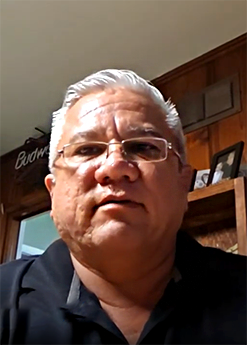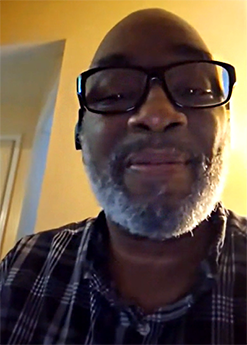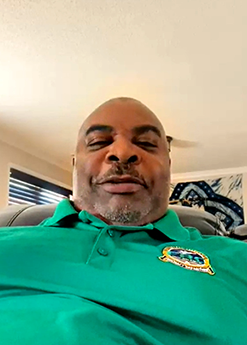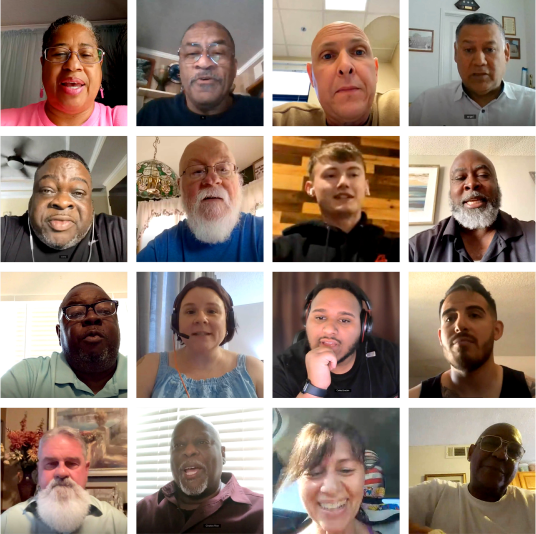Expert Medical Evidence Supports Stronger Cases
Our team of licensed medical professionals helps you gather the medical evidence that matters, so that you can tell the true story of your condition to support your personal injury or government benefit case.

A+ BBB Rating
Click for Review

Satisfaction Rating

Satisfaction Rating

Satisfaction Rating

Satisfaction Rating

Satisfaction Rating

Satisfaction Rating

Satisfaction Rating

Satisfaction Rating

Satisfaction Rating

Satisfaction Rating

Satisfaction Rating

Satisfaction Rating

Satisfaction Rating

Satisfaction Rating

Satisfaction Rating

Satisfaction Rating

Satisfaction Rating

Satisfaction Rating

Satisfaction Rating

Satisfaction Rating

Satisfaction Rating

Satisfaction Rating
TRAJECTOR MEDICAL REVIEWS
Our Mission: Supporting Your
Medical Evidence Journey

Let somebody help you, and Trajector is here to help.

Trajector is literally 100 plus percent for the veteran.

Y’all are extremely professional, you got me from 20% to 100% and I mean, that’s wild.

As I started working with Trajector, I realized you were making connections.

When I got in touch with your nurse staff, they reviewed with me each thing VERY thoroughly.

Trajector was much more comprehensive connecting other symptoms related to my service.

Had I known about all this stuff, I’d have started a lot earlier.

When I went with Trajector, they asked more questions. They were able to get the doctors to look at other things.

If you feel what I do, call Trajector.

Here was people who knew what to get and how to get it.

I just happened to speak to the right receptionist that day.

They will get you on the right path to getting it done.

I didn’t really expect anything, I just put my full faith to Trajector to find and get what they could and they absolutely did.

Any veteran that I run into that’s not at 100%, because all of us deserve it, I give them Trajector’s number.

Overall, the professionalism you guys showed and demonstrated made me feel that I was really protected, and that somebody was looking out for my benefit.

This company, they execute on their part.

You guys work with me hand in hand in obtaining the percentage that I obtained. The only thing that I’m saying is that you guys really helped me out in obtaining that 100%.

With the help of Trajector I went from 10% to 90% , I am very greatful, I really am.

If it wasn’t for Trajector, I’d probably still be at 0%. Everybody I’ve referred appreciates what Trajector has done.

All the behind the scenes work that Trajector does for you is invaluable.

Let somebody help you, and Trajector is here to help.

Trajector is literally 100 plus percent for the veteran.

Y’all are extremely professional, you got me from 20% to 100% and I mean, that’s wild.

As I started working with Trajector, I realized you were making connections.

When I got in touch with your nurse staff, they reviewed with me each thing VERY thoroughly.

Trajector was much more comprehensive connecting other symptoms related to my service.
Testimonials/reviews are applicable to the individuals depicted. Results may not be representative of the experience of others. Clients were not compensated for their reviews. We received the reviews by email, text, post, audio/video recording or verbal communication.
Who We Are

We provide live one-on-one personal consultations with licensed medical professionals who help increase your awareness of your medical conditions, which can help improve your longevity and quality of life while helping you identify and document medical evidence in support of your personal injury or government benefit case.
Why Medical Evidence Matters
Medical evidence is the foundation of any successful Legal claim For Injury. It Increases the likelihood that decision-makers fully understand the cause, extent, and future impact of your disability.

When it comes to pursuing benefits, a claim is only as strong as the evidence that supports it. Medical evidence connects your personal experiences to the facts decision-makers rely on to make fair and accurate determinations.
Without detailed, well-documented medical evidence, critical aspects of your case could be overlooked, leading to unnecessary delays or incomplete outcomes.
Our Role in Supporting Your Case
We ensure your medical evidence:
- Is complete and accurate, reflecting your unique circumstances.
- Highlights overlooked or underdiagnosed conditions that strengthen your claim.
- Tells the true story of your condition so that decision makers can fully understand the impact it has on your quality of life.
With the right evidence, you can move forward with confidence, knowing your case is as strong as possible.
We Are Medical Evidence Experts
MEDICAL EVIDENCE IS A CRITICAL PART OF THE BENEFITS JOURNEY.
IT'S TOO OFTEN OVERLOOKED
We specialize in:
- Identifying current and future potential medical conditions that may have been previously overlooked or underdiagnosed.
- Providing supporting medical evidence packets tailored to the medical conditions you, or your attorney or representative want to pursue for your case.
We do this by:
- Collecting medical symptoms from your records and consultations
- Mapping symptoms to potential overlooked or underdiagnosed conditions
- Assessing severity or variable impairment level of potential disabilities
- Assessing disability onset dates
- Discovering the causal factors of disabilities using published medical research
- Pinpointing aggravating factors that may lead to future disabilities
- Delivering comprehensive medical evidence packets tailored to your condition

Questions about Medical Evidence? Not sure where to start?
What We Don't Do
Trajector Medical does not engage in legal advocacy.
We do not:
- Draft legal demand letters
- Complete governmental benefits application forms
- File legal briefs or benefit claims
- Represent you in court or before any governmental agency
We help you identify your disability conditions which may be overlooked now or in the future. Then, we help you appropriately document the necessary medical evidence you or your attorney can use to help win your case.
Your Legal Right to Use Medical Evidence
All of the attorneys who practice in areas outside of the VA Benefits space (like Personal Injury, Mass Tort, Social Security, Workers’ Compensation, etc.) seem to agree that medical evidence is absolutely critical to achieving a successful outcome for their case, and the vast majority of attorneys who represent VA claimants agree.
Very rarely do we encounter Veteran clients who have been told by their well-intentioned attorney or VSO that they are not authorized to use Trajector Medical services. Out of 21 million veterans, a small handful question the legality of medical evidence documentation, and a few claim that you can get everything that Trajector Medical does for free from a non-profit VSO.
It’s interesting to note that these rare accusations seem to come only from VA representatives who clearly benefit from our Veteran clients, like you, not getting a fast resolution to the VA Benefits you deserve. VA attorneys can only charge fees after you’ve been initially denied your claim by the VA, and they get paid a percentage of your back pay when you finally win—so they have an interest in you not winning right away because their fees increase every month you have to wait for your appeal to win.
The big three VSOs have partnered with large VA law firms and receive substantial support in exchange for referring their denied Veterans to for-profit law firms that earn tens of millions in fees for working those appeals.
Even though these legal concerns about Trajector Medical are statistically extremely rare, we want to share the facts about the legality of engaging with someone to help document your medical evidence in support of your VA claim:
- The 14th Amendment to the Constitution protects Americans’ right to due process and allows you to present medical evidence in your legal case.
- Many additional federal laws have been implemented to require the VA to consider private medical evidence:
- 38 U.S.C. §5107(b): Requires the VA to accept all medical evidence when determining VA claims (passed to address the VA’s historical pattern of only considering what their paid doctors say about your disability and their pattern of ignoring private medical evidence).
- 38 U.S.C. §5125: Requires the VA to accept medical reports from private healthcare professionals.
- 38 C.F.R. §3.159(a)(1): Defines “competent medical evidence” and emphasizes the training and expertise of healthcare providers in assessing its weight.
- 38 U.S.C. §5101(d)(1)(A): Mandates that the VA provide Disability Benefits Questionnaire forms on its website for use by private medical professionals.
- Senior VA staff and other government representatives have affirmed before Congress that submitting private medical evidence is fully legal and supported by VA guidelines.
We reference the resources above so that you may be fully informed. We encourage you to do the research for yourself.
Our Commitment to All Clients
Trajector Medical operates on a success-based model, meaning we only receive payment after you win your claim. We are proud of the results we’ve achieved for thousands of satisfied clients, reflected in our average 4.6-star review rating for 12,525+ Google reviews and 1,500+ client review videos on YouTube.
We want to remind you that there are free VSO options out there, and even though ‘you often get what you pay for’ in life, we encourage you to exhaust your free options—or your patience with the process—before joining our Trajector Medical family.
We are committed to serving you and expect you will become one more of our 12,525+ happy clients who have given us a 4.6 average star review!
DISCOVER THE POWER OF MEDICAL EVIDENCE:
12,525+ reviews
from people just like you… and counting!
4.6 out of 5
Contact US
Talk to a Medical Evidence Expert
Questions about Disability Benefits? Not sure if you qualify?
We’re here to help. Our team of experts will contact you in 24-48 hours.


